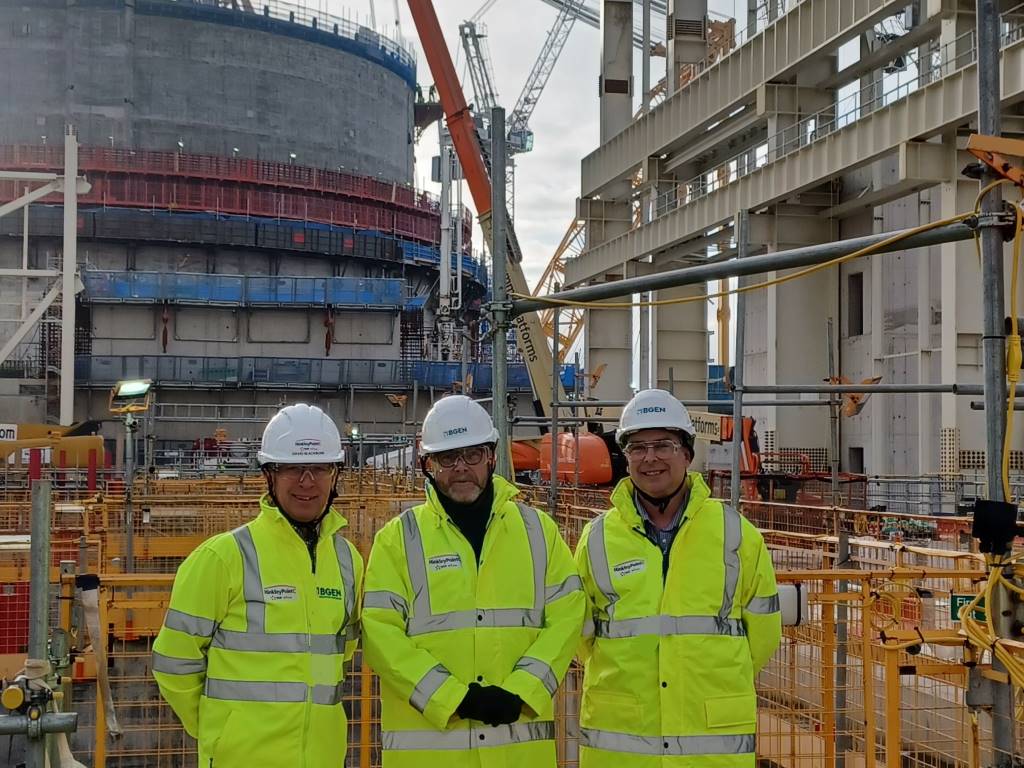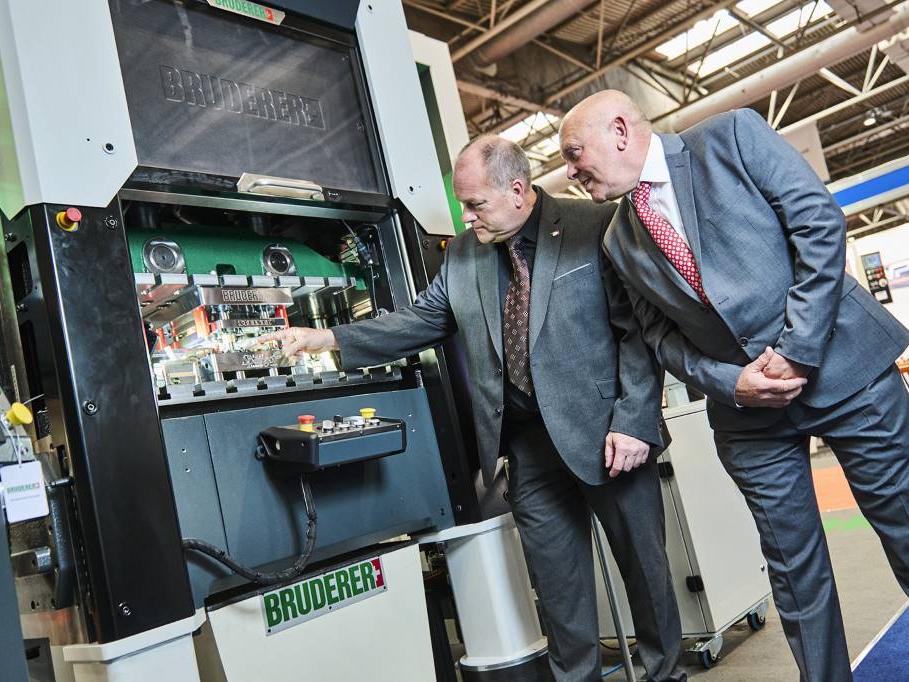What does 2021 hold for the manufacturing industry?

A year ago, the big challenge facing UK manufacturing, and business, was Brexit – would we be ready, would we adapt and cope with issues from supply chains and recruitment to collaboration and trade, to mention but a few? We knew Brexit was coming and every business was urged to be ready for change, but another storm threatening uncertainty was blowing in.
by Tim Paddison, managing director of Hoffmann Group UK

And so, a year on not only are we getting to grips with getting ‘Brexit done’, but we are now also in the midst of a global health challenge the like of which the world has rarely seen. Vaccines may be here, but COVID-19 variants are too, and we can’t wait until it all blows over. As Alan Turing said: “We can only see a short distance ahead, but we can see plenty there that needs to be done.”
In some ways the pause button was pushed last year. The predicted goals for the manufacturing industry of 2020 are very similar for 2021. Some have been added while others have come more into focus and importance, like increasing productivity, addressing skills shortages, improving sustainability, and tackling climate change.
Let’s take a closer look at the areas in which change is most likely to be seen this year.
Digitisation will be key
We need to prepare for the ‘next normal' as we recover, regardless of which manufacturing sector. This period of renewal and recovery will create one of the greatest opportunities – industrial digitisation. Our digital capabilities have obviously aided us in all sorts of ways in the last year, but now a great acceleration in the use of technology, digitisation, and new forms of working needs to take place. It will affect all we do.
According to The Digital Transformation Assessment produced recently by The Manufacturer and commissioned by IBM there is long-term optimism around recovery.
Two thirds of respondents said they were accelerating their investment in digital projects and putting people at the heart of the process who are able to act on ‘big’ data decisively and effectively. A further 92% of respondents ranked ‘improving operational efficiency’ as their greatest priority, suggesting that waste reduction and automated processes are likely to dominate the agenda in 2021 and indeed years to come.
Industry 4.0 is the continued need for the automation of traditional manufacturing that will take the industry to the next level. It is now well underway and will be sustained at pace over the next few years.
It’s top of our agenda at Hoffmann as at many other businesses because we are all subject to the damaging effects of lockdown on both domestic and export orders, rising costs and material and component availability.
And further, as Juergen Maier wrote as chair of the Made Smarter Commission in its 2017 review: “Focusing on the long-term challenge of the new industrial revolution will bring us together as a nation and make our country more prosperous.” As the review then said: “Get it right, and we will have found the key to rebalancing and strengthening our economy, creating many new, exciting, and well-paid jobs, and leading a renaissance for the UK as a true nation of creators and makers.”
Today, in the light of recent events, this is the fierce urgency of now. Digitisation also has implications for the talent pipeline. Working in partnership with machines is likely to create further opportunities for upskilling staff across the sector. While the need for staff either to upskill or even take up a new role in order to utilise advanced tools and processes may be a difficult transition initially, long-term this is likely to increase manufacturers’ earning potential, as well as job satisfaction and overall business sustainability.
With ongoing uncertainties, it has also become ever-more crucial for manufacturers to embrace innovative new ways to maximise productivity-per-head, ensuring that output is not further affected by talent shortages.
While we’re unlikely to see Industry 4.0 transform the sector immediately, its influence is growing by the day. Indeed, it looks increasingly likely that we are about to see the sector move into an age wherein the physical and digital worlds are interlinked as never-before, revolutionising businesses’ productivity, creativity, and profitability.
A commitment to sustainable solutions and turbocharging UK manufacturing
COVID-19 has also brought serious worldwide attention to the climate crisis. The opportunities in the green/low carbon economy are huge and are likely to see big growth in the UK and internationally from 2021 onwards.
Early adopters can capture market share and develop knowhow and expertise to tap into massive global markets as well as futureproofing themselves, rather than locking in high carbon emitting processes. Businesses that are able to take advantage of fiscal stimulus packages and pivot now rather than later will be at the forefront, not least because consumers (and employees) are demanding it.
Without strong commitment by energy-intensive manufacturers, it will be almost impossible to reach net zero targets in the near to medium future and as a result we are looking at a trend towards repurposing materials and resources, adopting renewable energy sources and reducing waste in the manufacturing process at every step.
We also need to keep Britain competitive and therefore Government has to follow up on promises to ‘turbocharge’ making Britain a science superpower. The majority of our innovations are manufactured outside the UK and so in order for Government to achieve its aim, it needs to help industry fund world-leading translational manufacturing to create high-value goods.
In addition, with an approved free trade agreement, the UK should ensure that the products it manufactures are in the main made up from UK components. Reshoring the manufacturing industry has to be a 2021 priority, because it could lead to significant GDP growth, jobs creation and social value.
And while the industry reacted superbly to the challenges of 2020, producing vital ventilators and PPE at extremely short notice, in 2021 and beyond it is crucial that we become a resilient manufacturing force to protect both our recovery and our future.
Hoffmann www.hoffmann-group.com/GB/en/houk/











